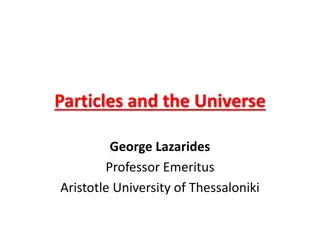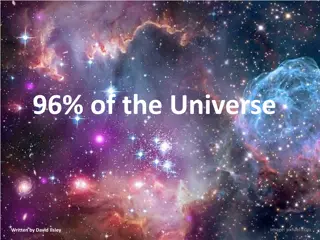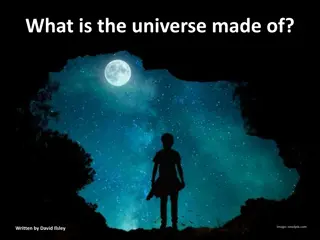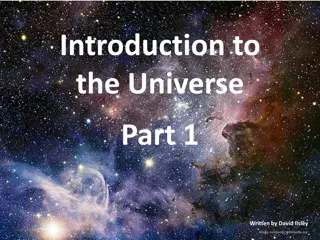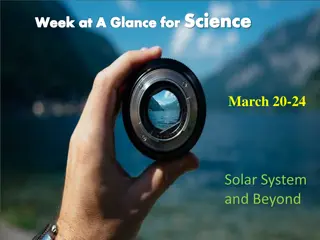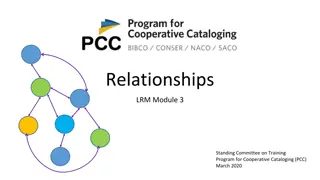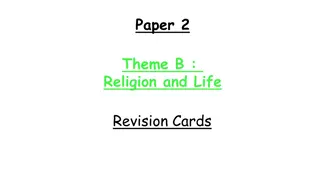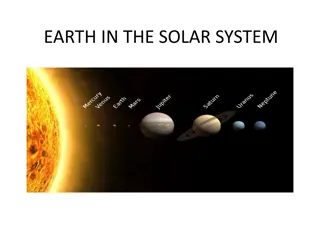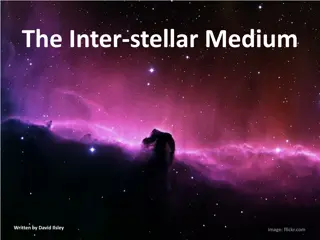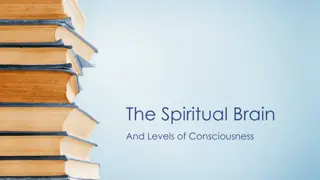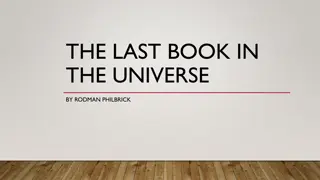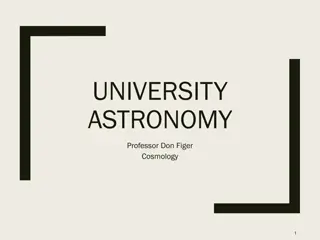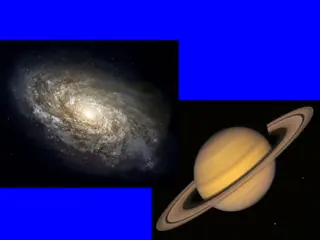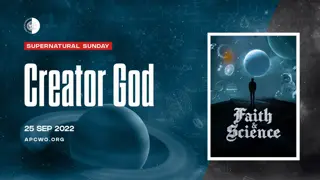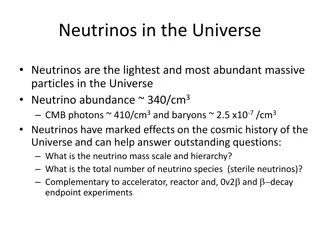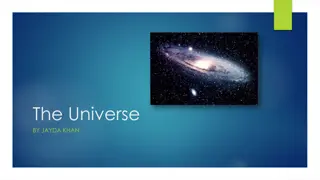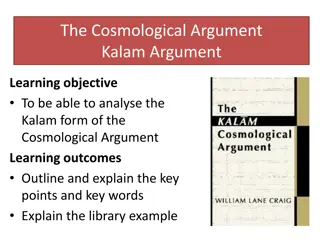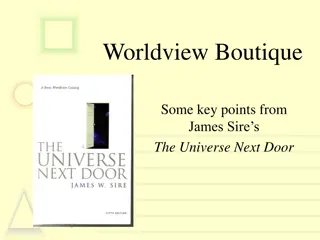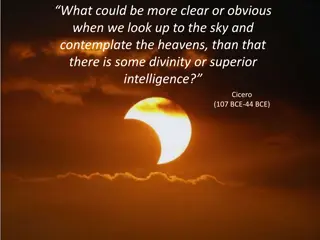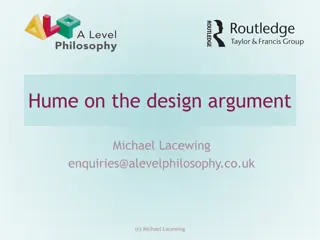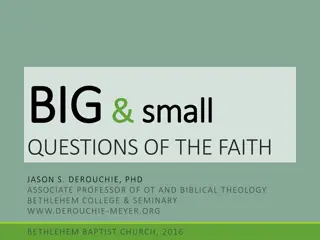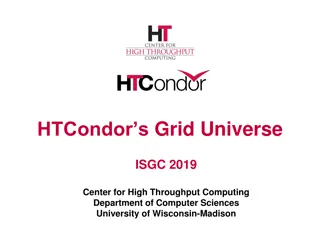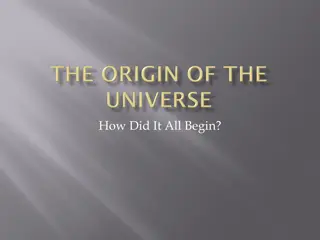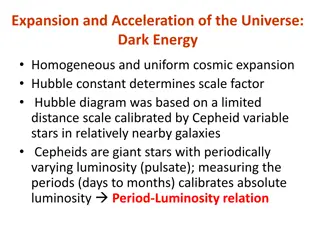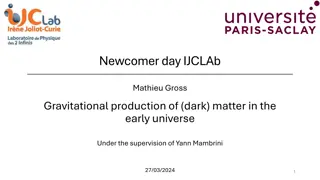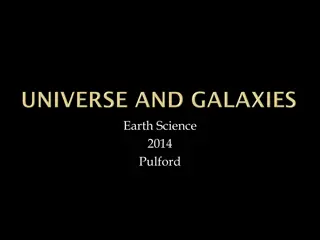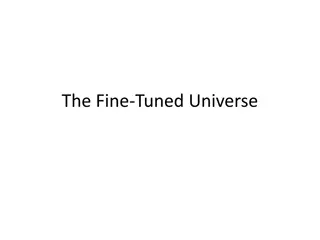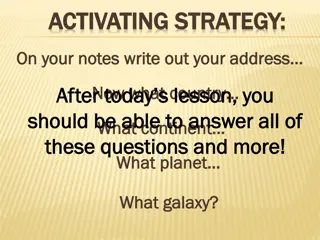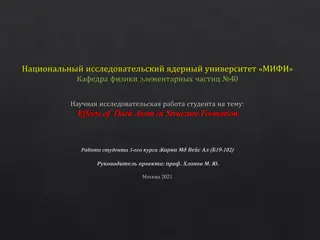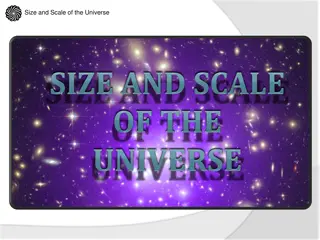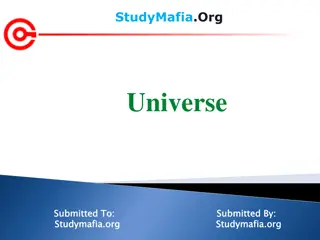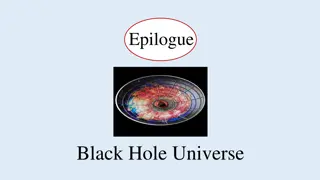textbook$ What Your Heart Needs for the Hard Days 52 Encouraging Truths to Hold On To [R.A.R]
\"[PDF] Download Universe: The Definitive Visual Guide Ebook | READ ONLINE\nFile Link => https:\/\/greatebook.club\/?book=0756698413\nDownload Universe: The Definitive Visual Guide read ebook Online PDF EPUB KINDLE\nUniverse: The Definitive Visual Guide download ebook PDF EPUB book in english langua
5 views • 1 slides
Read⚡ebook✔[PDF] Life in the Universe: Expectations and Constraints (Springer P
\"COPY LINK HERE ; https:\/\/getpdf.readbooks.link\/3319976575\n\nREAD [PDF] Life in the Universe: Expectations and Constraints (Springer Praxis Books) | Life in the Universe: Expectations and Constraints (Springer Praxis Books)\n\"\n
1 views • 6 slides
Exploring Particles and Fundamental Interactions in the Universe
Delve into the intricate world of particles and fundamental interactions in the Universe as explained by Professor Emeritus George Lazarides from Aristotle University of Thessaloniki. Discover the structure of matter, classification of particles based on interactions, constituents of hadrons, conser
1 views • 36 slides
Unraveling the Big Bang Theory and the Origins of the Universe
Explanation of the Big Bang Theory by Matthew Kogan, detailing the formation of the universe from a hot, dense mass expanding outward. As the universe cooled, particles formed, leading to the creation of stars and galaxies. The theory explores the imbalance between matter and antimatter, the intense
5 views • 12 slides
The Big Bang Theory and Evidence: A Brief Overview
The Big Bang theory proposes that the universe began with a violent expansion from a single point of pure energy around 13.787 billion years ago. Evidence such as red shift, the cosmic microwave background radiation, and the formation of fundamental particles supports this theory. The universe evolv
4 views • 18 slides
Evolution of Cosmic Understanding: From Flat Earth to Heliocentrism
Over millennia, human perception of the universe has transformed from viewing the sky as a dome above a flat Earth to accepting the heliocentric model proposed by Copernicus. Ancient beliefs, such as the Hebrew view of the universe, gave way to Greek philosophers' spherical Earth theory and the even
7 views • 67 slides
Examining the Global Centre for Climate Change and Atrocity Prevention
The document presents a case for establishing a pilot scheme for the Global Centre for Climate Change and Atrocity Prevention by Dr. Ben L. Parr. It includes an introduction outlining the need for such an initiative, an examination of the Climate Change and Atrocity Prevention NGO universe, and disc
9 views • 12 slides
Exploring the Composition of the Universe
The universe is a vast expanse consisting of various components. Only 0.4% comprises galaxies, while hydrogen, helium, protons, neutrons, and electrons make up 4%. The remaining 96% includes photons, neutrinos, dark matter, and dark energy. Photons, fundamental particles of light, exhibit different
0 views • 30 slides
The Building Blocks of the Universe: Protons, Neutrons, Electrons, Atoms, and Beyond
The universe is composed of just seven different things - protons, neutrons, and electrons- the fundamental building blocks of matter. These particles combine to form atoms like hydrogen, helium, and carbon, which are essential components of our bodies. Understanding the structure and properties of
0 views • 37 slides
An Exploration of the Vast Universe - Part 1
Delve into the intriguing magnitudes of celestial bodies and distances within our solar system, from the massive scale of the Sun to the minute size of Neptune in relation to the Earth. Discover the diversity of stars, planets, and dwarf bodies that populate our cosmic neighborhood, showcasing the i
3 views • 48 slides
Exploring the Solar System and Universe in Science - Week at a Glance
Dive into the fascinating realms of the solar system and beyond with a week-long exploration of Earth's position, scientific theories evolution, planetary comparisons, and cosmic phenomena. Engage in questioning, model development, data analysis, and more to deepen your understanding of the universe
0 views • 20 slides
Understanding Relationships in Bibliographic Universe
Relationships in bibliographic universe connect entities, providing context through entity-relationship models like IFLA LRM. Learn key terms, principles, and diagrams to identify relationships defined in IFLA LRM. Explore domains, ranges, inverse, recursive, and symmetric relationships. Enhance you
0 views • 23 slides
Exploring Religious Perspectives on Creation and Stewardship of the Universe
Christian and Muslim beliefs on the origins of the universe, the value of the world, and humans' role as stewards are discussed. Both religions emphasize respect for nature, awe at God's creation, and the responsibility to care for the planet for future generations. The concepts of dominion, steward
1 views • 10 slides
Understanding Celestial Bodies and Constellations in the Universe
Explore the fascinating world of celestial bodies in the universe, including stars, galaxies, planets, and constellations. Learn about the formation of stars, the structure of galaxies like the Milky Way, and how constellations have been observed and named throughout history. Discover the significan
0 views • 28 slides
Evolution of the Universe: From Big Bang to Galactic Recycling
380,000 years after the Big Bang, the Universe transitioned from a plasma to a gas, leading to the formation of atoms. Gravity caused gas clumps to form galaxies, stars, and other celestial bodies. The life cycles of stars play a crucial role in recycling material back into the inter-stellar medium,
1 views • 38 slides
Exploring Belief Systems and Models of the Universe
Delve into the intricacies of belief systems, levels of consciousness, and various models of the universe. Discover how different perspectives shape our understanding of spirituality, philosophy, and science. Reflect on the usefulness of your belief system and its impact on guiding your life and int
0 views • 33 slides
The Last Book in the Universe - Character Insights and Chapter Highlights
Explore the world of "The Last Book in the Universe" by Rodman Philbrick through character descriptions of Spaz and Ryter, highlighting their unique traits and interactions. Delve into the post-apocalyptic setting of The Urb and follow Spaz's journey as he navigates through a society controlled by g
1 views • 6 slides
Exploring Cosmology: A Journey Through the Universe's Mysteries
Delve into the fascinating field of cosmology with Professor Don Figer as he unravels the big bang theory, cosmological observations, and ponders the fate of the Universe. Learn about the origins of cosmology, its elements, history from Aristotle to Newton, and the evolution of our understanding of
0 views • 56 slides
Journey Through the Cosmos: From Einstein's Theories to the Big Bang
Explore the evolution of our understanding of the universe, from Einstein's initial beliefs in a static cosmos to the groundbreaking discoveries of an expanding universe and the Big Bang theory. Witness how observations of galaxies moving away in all directions and the cosmic microwave background ra
0 views • 13 slides
Exploring the Existence of a Creator God and the Design of the Universe
Reflecting on biblical verses and scientific findings, this content delves into the concept of a Creator God and the intricate design of the universe. From the creation of the heavens and the earth to the fine-tuning and complexity of the universe, various perspectives are presented to contemplate t
1 views • 27 slides
Insight into Neutrinos: Impacts on the Universe's Cosmic History
Neutrinos, the lightest and most abundant massive particles in the Universe, play significant roles in cosmic evolution. Their effects on large-scale structure, constraints on mass, and implications for fundamental questions provide valuable insights into the Universe's past and future research dire
0 views • 7 slides
The Evolution of the Universe: From Big Bang to Red Shift Analysis
The Universe, as we know it today, started with the Big Bang around 13.5 billion years ago, leading to the expansion of galaxies and the formation of stars, planets, and moons. Edwin Hubble's discovery of galaxies moving away from each other provided key insights into the expanding universe. Astrono
1 views • 13 slides
Understanding Gravity: The Force that Shapes Our Universe
Sir Isaac Newton's discovery of gravity revolutionized our understanding of the universe, explaining the force that keeps us grounded on Earth and governs the motion of celestial bodies. Gravity, as described by the Law of Universal Gravitation, is an attractive force that acts between all objects i
1 views • 19 slides
Understanding the Kalam Argument in the Cosmological Debate
The Kalam Argument, a form of the Cosmological Argument, asserts that everything with existence has a cause, including the universe. Developed by thinkers like al-Kindi, al-Ghazali, and William Lane Craig, it aims to prove that God was the initial cause of the universe. This argument suggests that t
0 views • 17 slides
Exploring Worldviews: Insights from "The Universe Next Door" by James Sire
Delve into the fundamental concepts of worldviews through James Sire's book "The Universe Next Door." Understand how worldviews shape our perception of reality, ethics, and existence, and explore the historical roots of different worldviews, including the impact of postmodernism. Reflect on pivotal
0 views • 30 slides
Contemplating the Divine: Teleological Arguments for Intelligent Design
When gazing at the heavens, the eloquent words of Cicero and the insights of Sir Isaac Newton and William Paley prompt contemplation on the existence of a divine or intelligent force shaping the universe. The discussion delves into teleological arguments, highlighting the order and design observed i
0 views • 9 slides
Analyzing Hume's Critique of the Design Argument by Michael Lacewing
The design argument contends that the intricate order in the universe suggests a designer. Michael Lacewing delves into Hume's objections to this argument, highlighting how the analogy between human-made objects and the universe falls short in establishing a similar cause. Hume questions the logic o
0 views • 10 slides
Important Doctrinal Affirmations About the Creation and Purpose of the Universe
Bethlehem's Elder Affirmation highlights the belief in God's creation of the universe out of nothing, with the purpose of displaying His glory for the joy of the redeemed. It emphasizes God's sufficiency, the divine nature of the universe, and the direct creation of Adam and Eve as the progenitors o
0 views • 23 slides
Understanding HTCondor Grid Universe: Job Management Capabilities and Submit File Configuration
Explore the HTCondor Grid Universe, which offers job management capabilities for high throughput computing. Learn about job delegation, fault tolerance, and different back end types supported. Understand how to configure submit files for the Grid Universe and differences from normal HTCondor jobs.
0 views • 31 slides
The Origin of the Universe: A Journey Through Scientific Theories and Discoveries
The concept of the universe's beginning has evolved over time, with early beliefs in its eternal nature shifting to the acknowledgment of a starting point. Pioneering scientists like Albert Einstein and Sir Fred Hoyle contributed to this transformative understanding, challenging traditional views. E
0 views • 27 slides
Understanding the Expansion and Acceleration of the Universe
The expansion and acceleration of the universe, driven by dark energy, is characterized by a homogeneous and uniform cosmic expansion. The Hubble constant, determined by the scale factor, plays a key role. The Hubble diagram, based on Cepheid variable stars in nearby galaxies, uses their varying lum
0 views • 10 slides
Academic Journey in High Energy Physics: Exploring Dark Matter Production in the Early Universe
Mathieu Gross embarks on a Ph.D. journey supervised by Yann Mambrini, focusing on gravitational production of dark matter in the early universe. His academic path includes studies at Ecole Polytechnique, with a Master's in theoretical physics and research on reheating and early universe dynamics. De
0 views • 5 slides
Discovering the Universe: A Journey Through Space and Time
Astronomers explore the vast cosmos, classifying galaxies into Spiral, Elliptical, and Irregular types. Our solar system resides in the Milky Way, a massive spiral galaxy. The accepted theory of the Big Bang explains the universe's origin, supported by Edwin Hubble's observations. Delve into the mys
0 views • 17 slides
The Origin and Evolution of the Universe
Debate in medieval philosophy over the universe's past, Kepler's finite universe theory, Newton's motion principles, and Poe's "Primordial Particle" concept. The Big Bang theory by Georges Lemaître and Edwin Hubble, with Friedmann's dynamic cosmological model. Also covers the Steady State theory an
0 views • 9 slides
Exploring the Fine-Tuned Universe and Belief in God
The discussion delves into the concept of the fine-tuned universe and the belief in God from a Christian perspective. It contrasts reasons for belief with challenges posed by atheistic viewpoints. The content covers responses to skepticism and insights into the Big Bang theory, fundamental forces, a
0 views • 26 slides
Exploring the Formation of Our Universe
Delve into the intriguing theories and concepts surrounding the formation of the universe, including the Big Bang Theory and the development of solar systems. Learn about the positioning of our solar system in the Milky Way Galaxy and understand how scientists believe solar systems formed after the
0 views • 17 slides
Exploring Dark Atom Effects on Structure Formation in the Universe
Overwhelming evidence points towards the existence of dark matter in the universe, with various theoretical models such as OHe atoms and Glashow's EIMP model proposed to explain its nature. Dark OHe atoms, consisting of 2 charged particles bound with primordial He nuclei, offer a unique perspective
1 views • 8 slides
Exploring the Size and Scale of the Universe
Delve into the vastness of the cosmos with this presentation on the size and scale of the universe. From the Earth to galaxies and superclusters, discover the mind-boggling dimensions of celestial bodies and realms. Explore your cosmic address, from local neighborhoods to the vast expanse of the uni
0 views • 22 slides
Understanding the Universe: An Exploration of Celestial Bodies
Scientists study the vast expanse of the universe, birthed from the Big Bang, where stars, galaxies, and constellations exist. Exploring celestial bodies like stars, planets, and moons reveals the wonders of our universe.
0 views • 20 slides
The Universe: Black Hole or Cosmic Enigma?
The intriguing concept of the Universe being a black hole is explored through discussions of Schwarzschild metric, observable universe's density, spacetime diagrams, and proper time for inside observers. The reversal of time within a black hole leads to thought-provoking insights into the nature of
0 views • 15 slides
![textbook$ What Your Heart Needs for the Hard Days 52 Encouraging Truths to Hold On To [R.A.R]](/thumb/9838/textbook-what-your-heart-needs-for-the-hard-days-52-encouraging-truths-to-hold-on-to-r-a-r.jpg)
![Read⚡ebook✔[PDF] Life in the Universe: Expectations and Constraints (Springer P](/thumb/21626/read-ebook-pdf-life-in-the-universe-expectations-and-constraints-springer-p.jpg)
